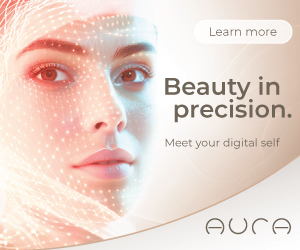Despite Sir Bruce Keogh’s UK review into cosmetic surgery concluding—5 months ago—that time-linked incentives, group deals and other inducements in the sector should be banned, new studies unveiled at the Annual Scientific Meeting of the British Association of Aesthetic Plastic Surgeons (www.baaps.org.uk) demonstrate that this type of marketing continues to flourish unabated.
One study presented at the Meeting revealed that more than half (52%) of the highest Google-ranking aesthetic plastic surgery providers still offer promotional deals, often tied with luxury-themed ‘perks’ such as chauffeurs, free photo shoots and holiday destinations.
Of these, almost two in five (37%) were time-linked (i.e. ‘book by Friday’). Not one provided the recommended two-stage written consent ‘cooling off’ process recommended by the Cosmetic Surgical Practice Working Party (CSWP).
‘This new, yet sadly unsurprising, evidence shows that despite the recommendations of Sir Bruce Keogh’s review, the most popular providers continue to advertise financial inducements and ‘luxury’ incentives, clearly reinforcing the preposterous notion that surgery is part of a celebrity-style status symbol involving photo shoots and ‘chauffeur services’,’ said BAAPS President Rajiv Grover.
‘There is nothing glamorous about surgery and these serious (and irreversible) procedures should not be sold alongside aspirational perks as if they were part of a jet-setting lifestyle.’
Another, separate study looking into providers of non-surgical treatments such as wrinkle-relaxing injections and dermal fillers, showed three out of five (58%) were offering incentives.
Worryingly, one third (32%) of these providers did not even specify who actually administered the treatments and over one quarter (26%) made no mention whatsoever of qualifications. Sites where these facial procedures could take place included shopping centres, gyms and even ‘at-home parties’. Only one fifth (22%) of the procedures were offered in facilities registered with the Care Quality Commission (CQC).
‘The continued free-for-all mentality which also involves untested procedures being marketed directly to the public must be reined in, which is why we’re pleased to launch the Government-endorsed National Institute of Aesthetic Research—the first of its kind in the world,’ said Mr Grover.
‘As concluded in the report earlier this year, thorough scientific evaluation, peer-reviewed studies and public education are urgently needed in the aesthetics sector; these have always been the BAAPS’ own objectives, as are now the NIAR’s.’
PRIME editorial board member, Dr Kate Goldie, said: ‘The implications of having a non-surgical aesthetic treatment are continually underestimated by the wider public. It is important that the way in which medical professionals communicate with patients promotes the understanding that these are medical procedures that carry risks and require a depth of medical knowledge and skill to be both safe and effective.
‘A focus on sales, rather than medical professionalism, helps to trivialise the image of non-surgical treatments, leading to the rather dangerous belief that they could really be carried out by anyone.’



